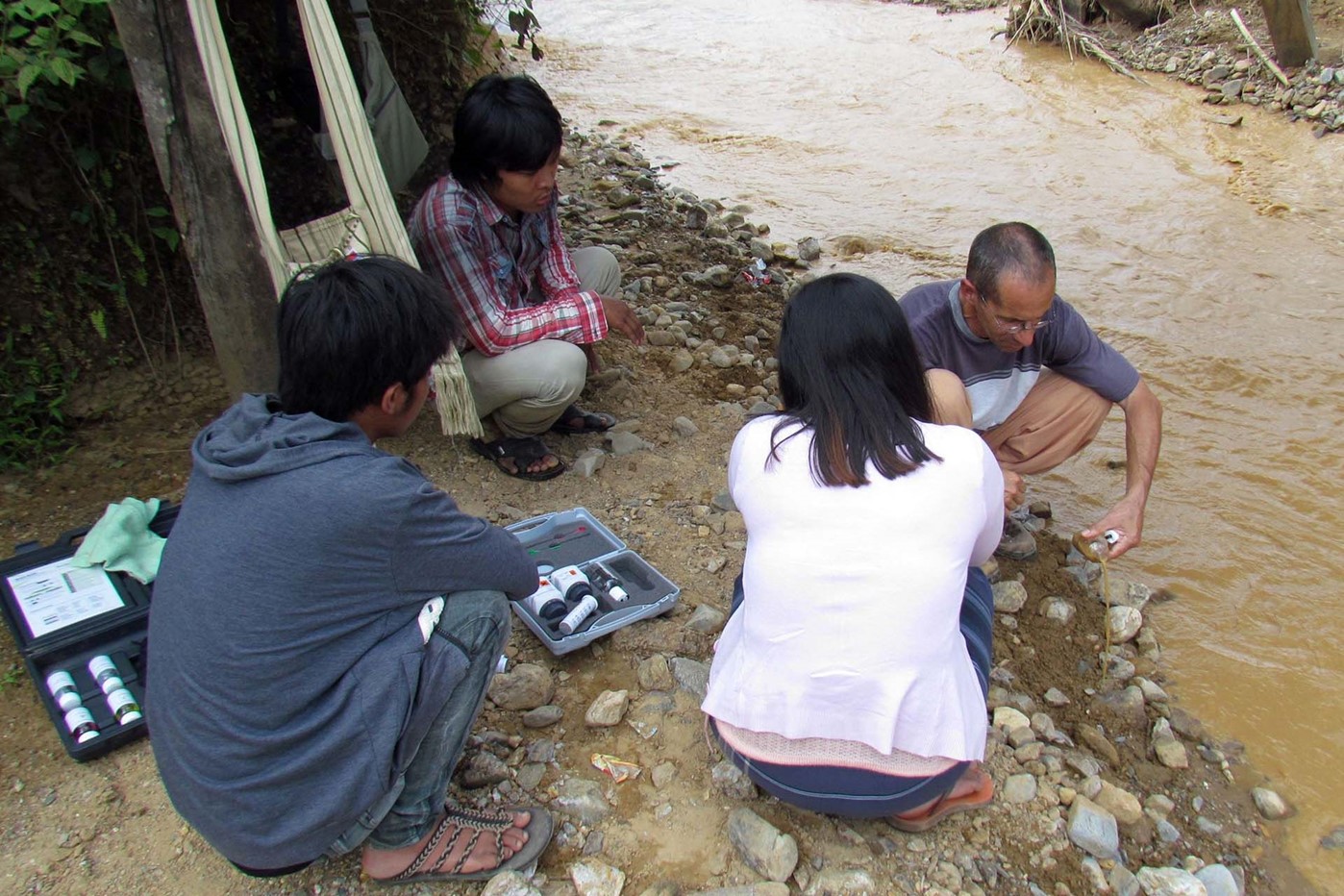
In October 2013, Lex and his wife Rini, visited Burma once again for the first project. They have already used some of the equipment made available by the Eijkelkamp Foundation. Lex van Gelder is an independent advisor in the area of water research and treatment and has been involved in water projects in developing countries for 10 years.
Lex and his wife have participated in various projects in Burma in recent years. Political circumstances in Burma make it difficult to involve established organizations in these projects, which is why they visited the country as private individuals.
When they travelled to Burma in October, their first project involved ascertaining water quality in an area that is very interesting for the mining industry. Although the mining methods used are currently still traditional (using no or few chemicals), it was suspected that these activities caused so much pollution that this would endanger the local population’s drinking water supply. This supply mainly consists of surface water; streams are often used as water source for cooking, washing, agriculture and, of course, for drinking. Indications from the local population about deteriorated water quality were a reason for starting this project.
Lex mapped out the current situation with an initial water quality measurement, a baseline measurement. Should further mining development result in pollution, the baseline measurement will enable this pollution to be verified. No tests had been carried out until this baseline measurement, which makes it difficult to demonstrate the presence of pollution: let alone ascribe responsibility to mining activities.
Besides measuring water quality and taking samples, Lex and his wife also worked out local possibilities of setting-up small-scale drinking water purification in Burma. Via workshops and guest lessons at primary and secondary schools, they also educated locals about the importance of hygiene, hand-washing and clean drinking water.
Stichting de Eijkelkamp Foundation provided Lex with various field kits including test strips for water quality measurement and a sieve set to conduct a sand filter demonstration.
Lex will be travelling to Burma again in 2014, for another project for which the Eijkelkamp Foundation provided a bailer boring auger set. This project will search for suitable groundwater with the aim of at least safeguarding drinking water quality by siting boreholes. As well as increasing the local population’s independence concerning a basic need, this will also result in logistical benefits. The local population in this area currently travels great distances to obtain water from partially polluted lakes and rivers. They still do this in a very primitive way using ox carts.
Boring holes with the bailer boring auger set enables water to be detected at limited depths. The project will offer training so that the local population can carry out this work themselves.
The project objectives are